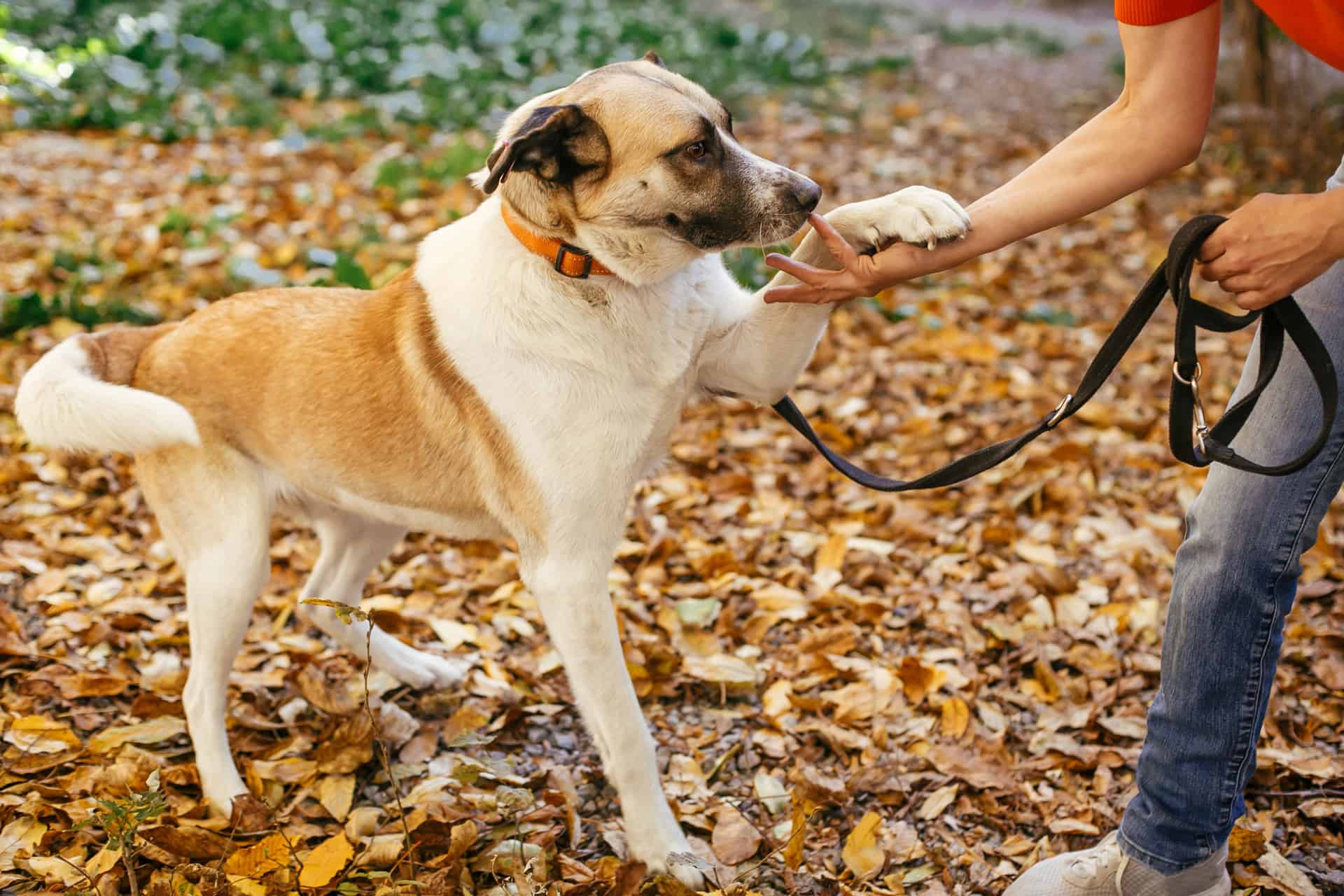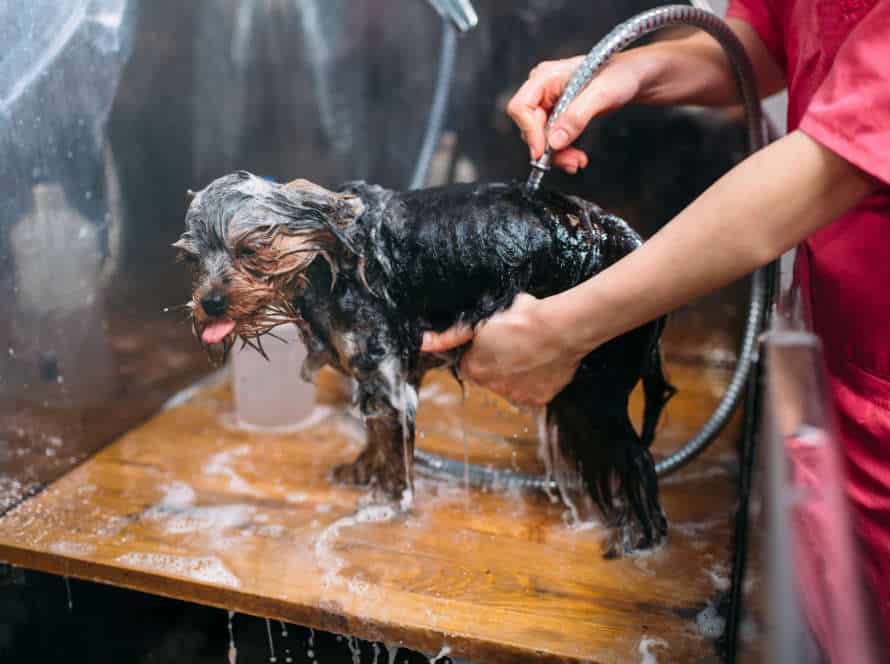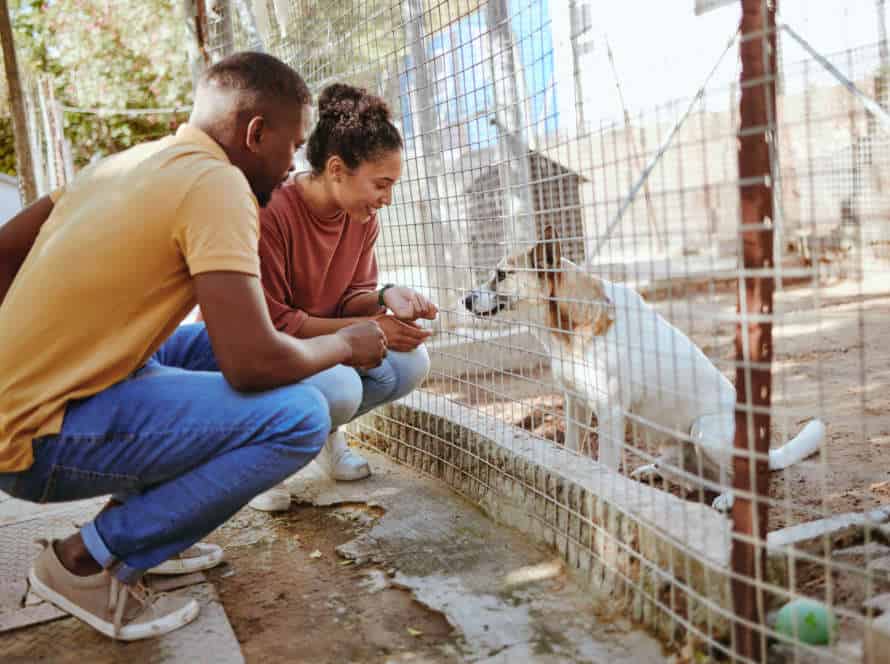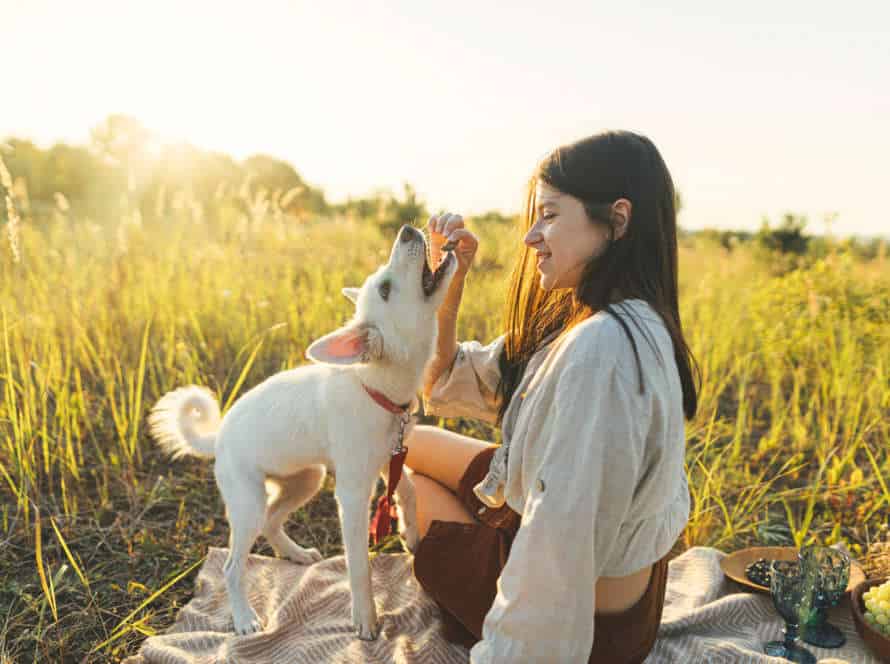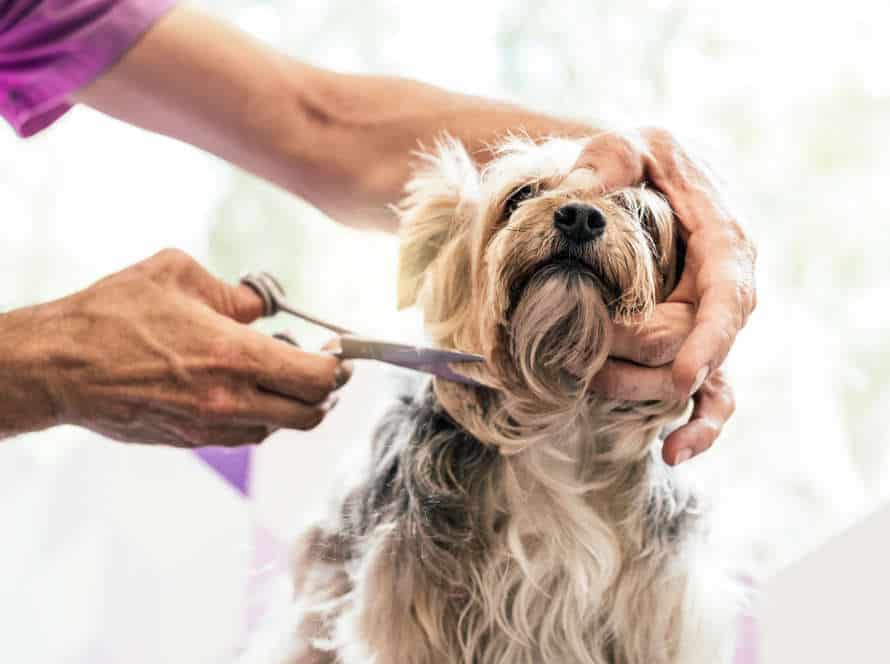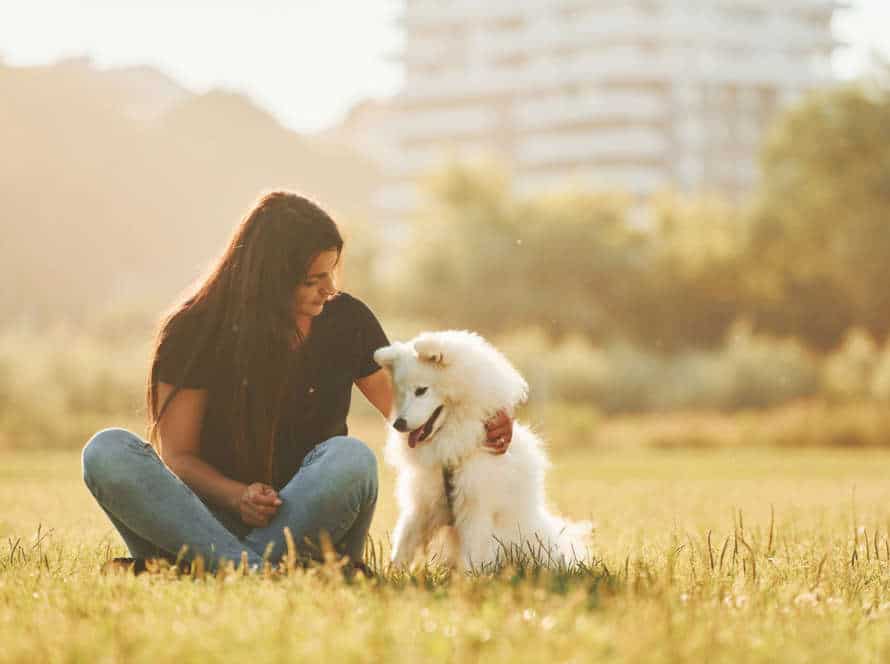Rescued Dogs and Trust Issues: Practical Solutions for a Better Bond
Rescuing a pup can be a fulfilling experience but it may be hard to gain the pup’s trust. Here are some tips that can help:
- Give the pup space to get used to their new home.
- Use treats, admiration, and love to reward nice behavior.
- Set up a daily routine for meals, activity, and play.
- Be consistent and patient with training.
- Look for help from a professional if the pup has been through a tough time.
- Remember to show love, patience, and kindness – this will help the bond become stronger.
Building Trust with a Rescued Dog
Rescued dogs can have difficulty trusting people. To form a bond with them, you must be patient and consistent. Here are some things you can do to gain their trust. These steps will help you and your dog build a strong relationship.
- Give them space: Let your dog approach you on its own terms. Allow them to sniff you and get comfortable with you before attempting to interact with them.
- Use positive reinforcement: Reward good behavior with treats, praise, and lots of love. This will help build positive associations with you and make them more receptive to training.
- Establish a routine: Dogs feel secure when they know what to expect. Establishing a routine for feeding, walking, and playtime can help your dog feel safe and comfortable in your home.
- Be patient: Building trust takes time. You may need to repeat these steps for several weeks or even months before your dog feels completely comfortable around you.
- Respect their boundaries: If your dog is uncomfortable in certain situations, such as being touched in a certain spot or meeting new people, respect their boundaries and give them space.
- Stay calm: Dogs can sense fear and anxiety, and it can make them more anxious and afraid. Stay calm and patient around your dog to help them feel safe and secure with you.
Understanding the History of Rescued Dogs
Grasping the history of rescued dogs is necessary for forming trust and a better connection with them. Many rescued dogs come from complex backgrounds, like neglect, abuse, and abandonment, which can cause trust issues.
To trust a rescued dog, it’s a must to comprehend their past encounters and come close with them with patience and sympathy. Here are some tips:
- Let them come to you: Rescued dogs may be cautious or terrified of strangers, so let them come to you according to what they want.
- Use positive reinforcement: Reward your dog with goodies, compliments, and love when they act well, like coming near you or obeying instructions.
- Give them a safe space: Supply your dog with a predefined secure place, such as a cage or bed, where they can hide when feeling overwhelmed.
- Devote quality time: Spend time interacting with your dog, like taking walks or playing games, to strengthen your relationship.
Pro tip: Locating a seasoned trainer or behaviorist can also assist in resolving any trust issues and make a customized plan for your rescued dog’s needs.
Giving Rescued Dogs Space and Time
Giving rescued dogs room and time is very important for establishing trust and a strong connection between you and your new doggy buddy. Here are some tips:
- Let the dog come to you first. Don’t force it to cuddle or begin contact without letting it have the space to explore and adjust to its environment.
- Create a secure and comfy living area for your pooch. This could be crate training, giving a snug bed, and making rules in your home.
- Be calm and consistent in your care and training. Remember that rescue dogs might have special issues and need extra effort and understanding from you.
- If needed, get the help of a professional dog trainer or behaviorist. They can give you professional advice and support you and your rescued pup.
Remember that gaining trust takes time, but with love, patience and positive reinforcement, you can make a lasting bond with your adopted pet.
Using Positive Reinforcement Training to Build Trust
Positive reinforcement training can be a great way to make rescued dogs trust you. Here are practical tips:
- Offer treats or play with toys to start small, positive interactions.
- Use clicker training to encourage learning new behaviours.
- Don’t use harsh punishment or negative reinforcement, as this can damage the trust.
- Be consistent and patient in your training. Give your dog love and affection throughout.
With effort over time, your rescued dog will learn to trust and bond with you.
Strengthening the Bond with Your Rescued Dog
Adopting a rescued dog can be a wonderful experience. But, it also has its own unique set of challenges. A big one being trust. Developing a trusting relationship with a pup who has had a hard life can be a challenge. However, there are ways to strengthen the bond.
This article will discuss practical solutions to create a strong bond with your rescued dog.
Socializing Your Dog with Other Pets and Humans
Nurturing socialization with your rescued pup is a must for a strong bond. Here are some tips to help your pup feel more at ease:
- Introduce to other pets and humans gradually, in a secure environment.
- Reward good behavior with treats and compliments to foster trust.
- Increase length and intensity of interactions over time.
- Sign up for obedience classes to learn commands and sharpen social skills.
- Be consistent and loving with your pup. Trust takes time and effort, but the end result is worth it.
Creating a Safe Space for Your Dog
Creating a safe zone for your pup is key when it comes to strengthening the bond with your adopted dog, especially if there are trust problems. Here are some useful tips to help:
- Set up a safe area for your dog – like a crate or a peaceful room with smells and objects they know.
- Establish trust with positive reinforcement and be consistent with feeding, potty breaks, exercise and training.
- Respect your dog’s limits – no direct eye contact, sudden movements or loud sounds.
- Learn your pup’s body language and behaviour to prevent upsetting times.
- Offer mental and physical stimulation like puzzles, training and outdoor play to reduce stress and worry.
By creating a secure area for your adopted dog, you can create a better connection based on trust, respect and love.
Playing and Engaging with Your Dog
Bonding with your rescued pet is key! Here’s some tips to help build trust.
- Reward good behaviour with playtime and treats.
- Use playtime to teach obedience and set boundaries.
- Make a routine – regular walks and playtime.
- Respect boundaries and be patient.
Remember, trust takes time but with patience, you can build a strong bond.
Special Considerations for Certain Types of Rescued Dogs
Rescued dogs can have special needs and trust issues. To build a bond with them, you need understanding, patience and consistency. This section will offer tips on working with various types of rescued dogs.
Dogs That Were Abused or Neglected
Dogs who have endured abuse or neglect need special care. They may have difficulty trusting, suffer physical and mental trauma, and take a while to get used to their new home and humans.
Here are some tips to build a better connection with a rescued pup:
- Be kind and patient.
- Teach them simple commands like ‘sit‘, ‘stay‘ and ‘come‘.
- Use treats, compliments, and playtime as rewards.
- Let the dog come to you for affection.
- Give them space when needed.
Remember, each dog is different and will take time to adjust. Bonding with a rescued pup requires patience, but it’s worth it when you see them thriving.
Dogs That Were Former Strays
Rescued dogs need extra care. Here are some tips:
- Be patient and give them a routine. A safe and consistent routine is a must.
- Use positive reinforcement, like treats and praise, to build trust and confidence.
- Socialize them slowly and purposefully. Let them get used to new people, sounds, and surroundings. But provide a safe space if they’re overwhelmed.
- If needed, seek professional help. An animal behaviorist can find any underlying issues and create a personalized training plan.
- Remember that each rescued dog is unique and has their own needs. With patience, love, and understanding, your former stray will become a beloved family member.
Dogs That Were Previously Used for Hunting or Fighting
Dogs used for hunting or fighting may show certain behaviors that need special attention when rescued. It’s key to understand these behaviors to form a stronger bond.
Aggression towards other animals, resource guarding, and lack of socialization with other dogs are common. Solutions to build trust and a healthy relationship with your rescued pup are:
- Patience: Allow them to adjust to the new environment, trust their family and overcome traumas at their own pace.
- Consistency: Set a daily routine to give them stability and predictability.
- Socialization: Introduce your dog to other dogs and people slowly to help them conquer their fears and improve behavior.
Rescuing a dog is rewarding but requires patience, understanding and extra care to help them overcome traumas and become a part of your family.
Relying on Professionals for Help
Adopting a rescue dog can be tough. Trust issues may make it hard to have a strong bond. If you’re feeling lost, seek help! An animal behaviorist or canine specialist can give great advice. Explore the options and resources available. With these, you can create a trusting relationship with your pup!
Consulting with a Veterinarian or Behaviorist
If you have a rescued pup who has trust concerns, it can be very useful to consult a vet or behaviorist. A vet can detect any medical troubles that can lead to these trust problems and suggest treatment. Whereas, a behaviorist can help you understand your pup’s body language and diagnose any behavioral matters. They can also recommend how to solve them.
Here are some tips for a stronger bond with your pup:
- Give your pup a comfy spot to go to when they need to.
- Praise and give treats for good behaviors.
- Use positive reinforcement training to develop trust and self-assurance.
- Be patient with them and don’t push them into situations that make them anxious.
By getting professional help and using these tips, you can create a tighter bond with your pup and make them feel secure and loved.
Enrolling in Obedience Classes
Enrolling your pup in obedience classes is a smart move for dog owners who want to build a better bond with their rescued pets. Even though it may seem intimidating to get help from professionals, classes can give both dogs and owners handy solutions to improve their relationship. Here are some advantages:
- Professionals guiding: Obedience classes are conducted by experienced trainers who can give advice and aid to pets and owners.
- Socializing: These classes provide chances for dogs to make friends with other pooches, helping them to feel relaxed in new places.
- Positive reinforcement: These classes focus on using constructive methods to strengthen communication and trust between dogs and their owners.
- Personalization: Many of these classes can be adapted to tackle specific issues or questions you may have with your pooch.
Keep in mind that forming a special connection with a rescued dog requires patience and time. Attending obedience classes is just one step in creating a secure and pleasant bond with your lovable pet.
Seeking Out Support Groups for Dog Owners
Dog owners have a great way to exchange know-how and stories: support groups! Taking care of a rescued pup with trust issues can be challenging. Here are ways to get help:
- Online Communities: Check out Facebook groups, Reddit, and forums for support, tips, and motivation.
- Professional Help: Dog trainers and behaviorists can give practical solutions for restoring trust between you and your pup.
- Other Dog Owners: Speak to other dog owners about their experiences with trust issues.
Support groups make it easy for dog owners to get advice, tell stories, and succeed in dog ownership.
Frequently Asked Questions
Q: What are some signs that a rescued dog has trust issues?
A: Some signs include avoiding eye contact, hiding or cowering, excessive barking or growling, and reluctance to be touched or petted.
Q: How can I help my rescued dog overcome trust issues?
A: Consistency, patience, and positive reinforcement are key. Start with basic obedience training and build trust through regular routines, praise, and treats. Be mindful of body language and establish firm boundaries while also providing plenty of love and affection.
Q: Can medication help a rescued dog with trust issues?
A: While medication can sometimes be an effective short-term solution, it should never be relied upon as a sole method for addressing trust issues in dogs. Consult with a veterinarian before introducing any medications.
Q: What can I do to help my rescued dog feel more comfortable with strangers?
A: Gradual exposure to people and situations can help desensitize a dog to new experiences. Start with short interactions in low-stress environments and gradually increase the duration and intensity as the dog becomes more comfortable.
Q: Is it possible for a rescued dog with trust issues to fully overcome them?
A: While every dog is different, with time, effort, and dedication, many rescued dogs can learn to trust again and form strong bonds with their owners. However, it is important to be realistic and patient, as progress may be slow and setbacks may occur.

